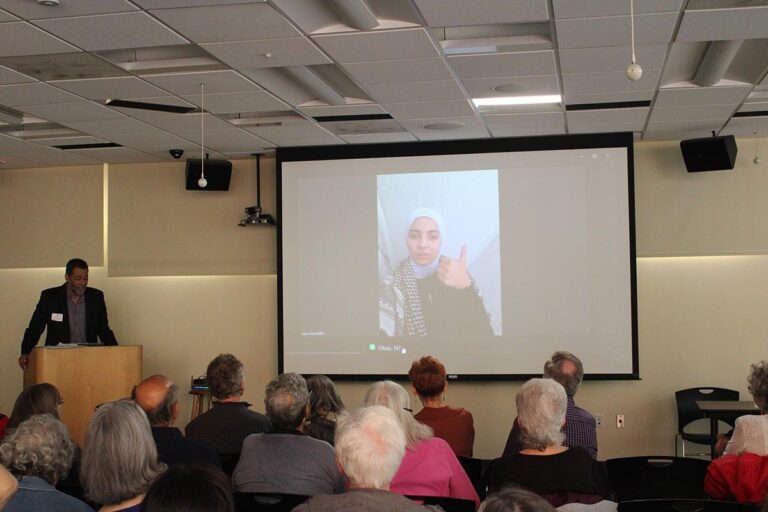Philadelphia CitizensŌĆÖ Tribunal Finds Israel and U.S. Responsible for War Crimes and Genocide in Gaza
Groundbreaking Verdict from Philadelphia CitizensŌĆÖ Tribunal on Gaza Conflict
A grassroots tribunal convened in Philadelphia has issued a landmark judgment accusing both Israel and the United States of committing war crimes and acts of genocide in Gaza. This tribunal, composed of international legal scholars, human rights defenders, and activists, conducted extensive hearings scrutinizing alleged breaches of international humanitarian law during recent hostilities. Their verdict starkly contradicts official government accounts and ignites urgent debates about legal responsibility and moral accountability on the global stage.
The tribunalŌĆÖs comprehensive report highlights several critical violations, including:
- Intentional attacks on civilian infrastructure such as schools, hospitals, and residential neighborhoods, violating the principles of distinction and proportionality under international law.
- Enforcement of collective punishment through prolonged blockades that severely restrict access to food, water, and medical supplies, exacerbating humanitarian distress.
- Systematic displacement and oppression of Palestinian families, raising allegations of ethnic cleansing.
| Allegation | Supporting Evidence | Tribunal Conclusion |
|---|---|---|
| Attacks on Civilian Sites | Satellite imagery and eyewitness accounts | Found guilty of war crimes |
| Gaza Blockade | Reports from UN humanitarian agencies | Classified as collective punishment |
| Forced Displacement | Data from international NGOs | Recognized as ethnic cleansing attempt |
In-Depth Review of Evidence Against Israel and the United States
The tribunalŌĆÖs investigation was thorough, incorporating a diverse array of evidence including high-resolution satellite photos, intercepted military communications, and firsthand testimonies from survivors. These accounts detailed extensive damage to civilian facilitiesŌĆöschools, hospitals, and homesŌĆöprimarily in Gaza. Analysts identified consistent patterns of disproportionate aerial and ground assaults that disproportionately harmed non-combatants, suggesting deliberate targeting strategies.
Notably, leaked documents obtained by investigative journalists revealed orders allegedly authorizing these operations, indicating close coordination between Israeli and U.S. military forces.
Highlighted findings include:
- Confirmed deployment of internationally prohibited weapons, such as white phosphorus.
- Verified instances of forced displacement and starvation resulting from blockade policies.
- Casualty data showing a disproportionately high number of civilian deaths compared to combatant fatalities.
- Evidence of intelligence sharing and logistical collaboration between Israel and the United States.
| Evidence Type | Source | Significance |
|---|---|---|
| Satellite Imagery | Independent analysts and NGOs | Confirmed targeted strikes on civilian areas |
| Eyewitness Testimonies | Field reports from humanitarian organizations | Documented human rights abuses and trauma |
| Intercepted Communications | Leaked military briefings | Evidence of strategic military directives |
| Investigative Journalism | Media investigations | Revealed collaboration and tactical support |
Repercussions for U.S. Foreign Policy and International Legal Frameworks
This unprecedented ruling by the Philadelphia tribunal could significantly influence U.S. foreign policy, especially regarding its steadfast alliance with Israel. The verdict amplifies demands for Washington to reconsider its military aid and diplomatic support, potentially leading to enhanced congressional scrutiny and stricter conditions on assistance. It compels policymakers to grapple with the ethical and legal ramifications of their international partnerships, particularly in light of U.S. obligations under both domestic and international law.
On the global stage, the tribunalŌĆÖs conclusions invigorate ongoing discussions about enforcing accountability for war crimes and genocide. This may accelerate efforts within international bodies such as the United Nations and the International Criminal Court to strengthen mechanisms that prevent impunity and promote justice.
- Policy Adjustments: Introduction of more rigorous oversight on military aid and diplomatic engagement.
- Global Pressure: Calls for independent probes and potential sanctions against violators.
- Legal Impact: Reinforcement of international legal norms concerning war crimes.
- Diplomatic Dynamics: Increased emphasis on peace negotiations and conflict resolution.
| Area of Influence | Anticipated Effect |
|---|---|
| U.S. Military Assistance | Implementation of stricter conditions and oversight |
| International Justice | Enhanced enforcement and accountability measures |
| Diplomatic Relations | Increased diplomatic tensions and renewed peace efforts |
Urgent Calls for Justice and Accountability in Gaza
Following the tribunalŌĆÖs verdict, there has been a surge in demands from global civil society for immediate and sustained interventions to halt ongoing abuses in Gaza. Human rights advocates and legal experts emphasize the necessity of robust accountability mechanisms to ensure justice for victims. Key recommendations include:
- Thorough international investigations led by impartial entities to hold Israeli and U.S. officials responsible for violations.
- Targeted sanctions against individuals and organizations implicated in war crimes and genocidal policies.
- Establishment of humanitarian corridors to guarantee safe passage for medical aid and essential resources to civilians.
Moreover, civil rights groups advocate for a fundamental transformation in diplomatic approaches, centering the experiences and rights of survivors and affected communities. Below is a summary of proposed accountability strategies endorsed by leading legal advocacy organizations:
| Accountability Initiative | Objective | Projected Outcome |
|---|---|---|
| International War Crimes Tribunal | Prosecute responsible parties | Set legal precedents and deter future violations |
| UN Security Council Action | Enforce ceasefire agreements | Reduce civilian harm and hostilities |
| Expansion of Global Humanitarian Aid | Bolster GazaŌĆÖs healthcare and essential services | Mitigate medical emergencies and suffering |
| Sanctions on Complicit Actors | Ensure financial and political accountability | Pressure to cease aggressive actions |
Final Thoughts
The Philadelphia CitizensŌĆÖ TribunalŌĆÖs verdict injects a provocative perspective into the ongoing discourse surrounding the Gaza conflict, spotlighting grave accusations of war crimes and genocide against Israel and the United States. Although the tribunal lacks formal legal authority, its findings resonate deeply within international human rights circles and amplify calls for justice and accountability. This development underscores the complex humanitarian and political challenges that persist in the region, with consequences that extend well beyond its borders. As global attention remains fixed on Gaza, there is a growing imperative for renewed diplomatic efforts aimed at achieving a sustainable and peaceful resolution.








